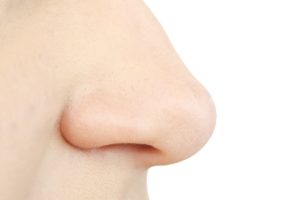 This month a number of persons asked me about the probiotic Lactococcus lactis (in Probiorinse) and whether it works. This product is marketed to people with sinusitis or sinus infections, with the message that it improves the sinus microbiome and sinus health. Does it?
This month a number of persons asked me about the probiotic Lactococcus lactis (in Probiorinse) and whether it works. This product is marketed to people with sinusitis or sinus infections, with the message that it improves the sinus microbiome and sinus health. Does it?
Unfortunately, the research says no. A well-done study published last year found that the bacteria Lactococcus lactis (Probiorinse) doesn't help to improve sinus symptoms in those with sinus issues. Yes, that bacteria is found in the sinuses, but it is not a keystone bacteria (one with a big effect) in sinus health.
The study compared the Probiorinse (Lactococcus lactis) product to Xlear (xylitol) and regular saline rinses.
The researchers tested xylitol, the probiotic Lactococcus lactis, and ordinary saline rinses separately for one month in a group of persons with chronic sinusitis. They found that none of these improved sinusitis symptoms or sinus microbial diversity (the sinus microbiome). In other words, there were no significant differences among the 3 groups.
Those with chronic sinus problems still had them at the end of the study, and their sinus microbiomes and symptoms were still very different from those of the healthy participants.
By the way, another study analyzed Lactoccocus lactis (using the product Probiorinse) against some strains of harmful bacteria (Pseudomonas aeruginosa) collected from persons with chronic sinusitis and found "no effect on 4 strains, a modest inhibitory effect on one strain, and a modest proliferative effect on one" (it increased this harmful strain!). Basically no effect - not a good result.
Bottom line: Stick with ordinary saline rinses to help with sinus congestion. The medical view is that saline nasal irrigation is recommended because it helps a little with nasal stuffiness or congestion, even though this effect is temporary (a few hours?). Also, try the probiotic Lactobacillus sakei, which is a keystone bacteria in the sinuses and which kills/dominates over many harmful bacteria (e.g., Staphylococcus aureus - a problem bacteria in many with sinusitis).
Excerpt from the 2021 study by Lambert PA, et al., in the medical journal Laryngoscope Investigative Otolaryngology: Microbiomics of irrigation with xylitol or Lactococcus lactis in chronic rhinosinusitis
No significant trends in alpha or beta diversity as a result of treatment were observed. SNOT‐22 score did not change significantly following treatment with xylitol, L. lactis, or saline. [Translation: the microbiome (alpha and beta diversity) didn't change, and symptoms (SNOT-22 score) didn't change]
